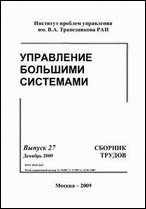|
This article is cited in 1 scientific paper (total in 1 paper)
Analysis and Synthesis of Control Systems
Algorithmic stability and complexity of implicit adaptation of nonstationary thermal conductivity mesh model to heated substance
P. Zhukova, A. V. Fomina, A. I. Glushchenkob
a STI NUST “MISIS”, Stary Oskol
b V.A. Trapeznikov Institute of Control Sciences of RAS, Moscow
Abstract:
This paper deals with the process of adaptation of a numerical model of nonstationary thermal conductivity implemented with the help of finite difference methods. The algorithmic stability has already been proved for the classical representation of these models in most applications and problems, but in this case we consider a problem related to the parametric adaptation of the equation of nonstationary heat conduction to the heated substance implemented by solving of the related variational problem. The basis of this approach implies replacement of thermophysical parameters of the equation in question by freely adjustable parameters and their adaptation ("model training") by a stochastic gradient method. Optimization of algorithmic equations that do not have an analytical form is associated with unstable initial conditions and "training" trajectories. To avoid falling into these regions we need to impose restrictions on the adjustable parameters. In this paper, such constraints are derived on the basis of proven stability conditions for the classical finite-difference model of non-stationary thermal conductivity. As a result of the numerical experiments, it is shown that the proposed constraints allow one to increase, on average, the number of stable initial conditions by 13
Keywords:
mesh model, nonstationary thermal conductivity, adaptation, gradient descent method, algorithmic complexity, computational stability.
Received: December 1, 2022
Published: January 31, 2023
Citation:
P. Zhukov, A. V. Fomin, A. I. Glushchenko, “Algorithmic stability and complexity of implicit adaptation of nonstationary thermal conductivity mesh model to heated substance”, UBS, 101 (2023), 39–63
Linking options:
https://www.mathnet.ru/eng/ubs1137 https://www.mathnet.ru/eng/ubs/v101/p39
|

| Statistics & downloads: |
| Abstract page: | 38 | | Full-text PDF : | 9 | | References: | 10 |
|




 Contact us:
Contact us: Terms of Use
Terms of Use
 Registration to the website
Registration to the website Logotypes
Logotypes








 Citation in format
Citation in format 
